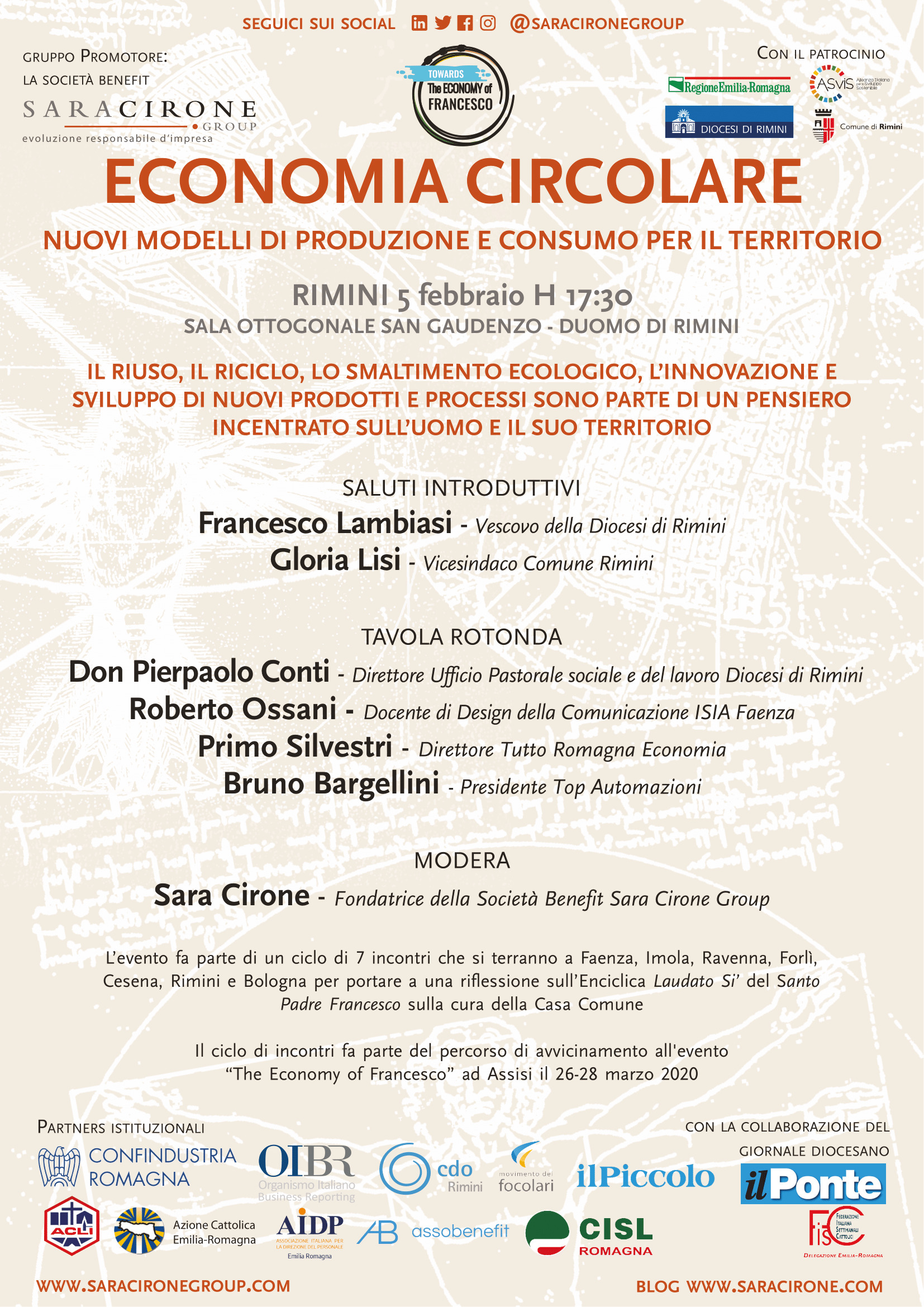“The industrial system, at the end of its cycle of production and consumption, has not developed the capacity to abort and reuse waste and by-products. We have failed to implement a circular production model that ensures resources for everyone and for the future generations, and that requires the maximum reduction of the use of the non-renewable resources, the moderation of the consumption, maximize the efficiency, reuse and recycle.” Through this words, Pope Francis encourages since ever and on several occasions the transition from a “take-make-dispose” economy, based on the accessibility and the exploitation of large amount of resources and energy – a model that is less suitable for the reality in which we act- to a new model of economy that is planned for reuse the materials in successive production cycles, by minimizing waste.
The transition to the circular economy
So, the circular economy should be promoted as well as an approach that aims to reduce the exploitation of the resources and to promote the reuse and the recycle. This is the subject of the next step of the roadshow “For the Common Good” promoted by Sara Cirone Group Benefit Society in partnership with the Catholic weekly magazines and with the support of the Emilia Romagna Region and of the Italian Alliance for the Sustainable development. The event, that will be plastic free, will take place at the Sala Ottagonale San Gaudenzio in Rimini’s Cathedral on 5th February at 17.30 and it will be titled “Circular Economy. New models od production and consumption for the territory”.
After the introductory greetings of S.E. Mon. Francesco Lambiasi, Bishop of Rimini, and of Deputy Major Gloria Lisi, the speakers will be don Pierpaolo Conti, Director of the Social and Work Pastoral Office of the Diocese of Rimini; Roberto Ossani, teacher of Communication Design ISIA of Faenza; Primo Silvestri, director of Tutto Romagna Economia; Bruno Bargellini, President of Top Automazioni. The moderator will be Sara Cirone, Founder of the Sara Cirone Group Benefit Society.
Waste and innovation.
“The waste is the harder expression of waste. The economy, that is born to be “care of the house”, has become depersonalized; instead of serving man, it enslaves him, by subjecting him to financial mechanisms which are more and more far from the real life and less governable.” So, the transition to a circular economy can no longer be put off: it’s necessary to promote models of growth based on reusing, recycling, environmentally sound disposal, on the innovation and the development of new products and new processes, so that a thought focused on the man and his territory develops, a thought that leads to a greater social fairness and to the respect for the environment.
The goal n. 12
The promotion of a circular economy is consistent with the Goal 12 of the Objectives of Sustainable Development of the ONU Agenda 2030 against which the AsVis 2019 Report showed a significant improvement in Italy thanks to the progresses in the rate of circularity of the material and in the percentage of waste recycling, in addition to the continuous decrease of the consumption of internal material per unit of Pil.
This Report AsVis underlines that, in terms of responsible production, it’s important to move up the transition to a circular economy through the innovation of the production models of the companies.
Concrete Solutions for the common good.
So, it’s necessary to implement as soon as possible the solutions that can lead us toward models of life and of consumption aimed to sobriety, which are able to encourage the flowering and the stay of life in the future and to develop the common good of the whole society. In Rimini, we will see how it’s possible to lay the foundation to give concrete answers on the territory about these issues that are so important for the future of our civilisation.
